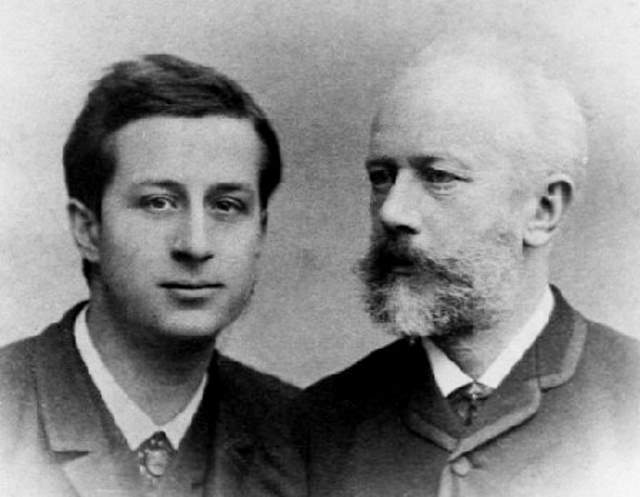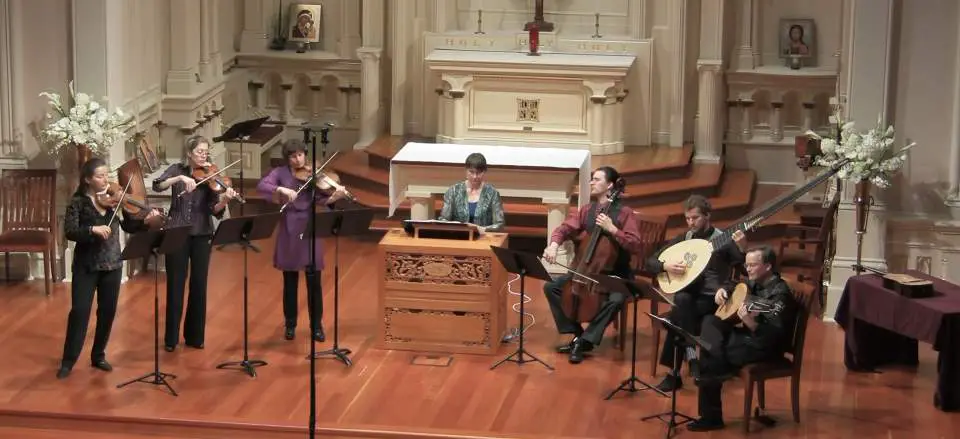Ukrainian classical pianist Valentina Lisitsa plays August Wilhelmj’s arrangement of the second movement, Aria, from Johann Sebastian Bach’s orchestral suite No. 3 in D Major, BWV 1068, commonly known as “Air on the G String”, with the arrangement of Alexander Siloti. Lisitsa dedicated this recording to the innocent victims of the terror attacks.
Lisitsa also reminds us of a beautiful story: In 1977 when the Voyager spacecraft was about to be launched, prominent scientists were asked what would be the most appropriate to send into outer space as a manifesto of human civilization. The eminent biologist Dr. Lewis Thomas answered, “I would send the complete works of Johann Sebastian Bach.” After a pause, he added, “But that would be boasting”.
Johann Sebastian Bach’s Air on the G String
The “Air on the G String” is one of the most celebrated and recognizable pieces by Johann Sebastian Bach, a titan in the world of classical music. Although Bach himself never used this title, the piece is originally part of his Orchestral Suite No. 3 in D major, BWV 1068. Specifically, it serves as the second movement of this suite and is often referred to as simply the “Air.” The suite itself was probably composed between 1717 and 1723, a period during which Bach was serving as Kapellmeister in Cöthen.
The name “Air on the G String” was coined later, and it comes from a 19th-century arrangement by August Wilhelmj, a German violinist. Wilhelmj modified the piece so that it could be played entirely on the G string of the violin, hence the name. This arrangement allowed the piece to gain even more widespread popularity.
Musically, the “Air” is renowned for its expressive depth and emotional nuance. It showcases the Baroque era’s artistic grandeur in a rather intimate form. It’s built upon a basso continuo, a fundamental musical framework of the Baroque period, which lays the foundation for elaborate melodic lines. The counterpoint – the relationship between multiple independent melodies happening simultaneously – is intricate yet accessible, providing both emotional impact and intellectual stimulation.
The piece has enjoyed immense popularity not just in classical settings but also in popular culture. It has been featured in numerous movies, commercials, and special events like weddings. One reason for its widespread appeal is its versatility; the piece can sound equally compelling whether performed by a full-string orchestra or a solo instrument with piano accompaniment.
The “Air on the G String” has often been analyzed for its artistic techniques and emotional conveyance. The expansive melody is often cited as an example of Bach’s prowess in fusing technical complexity with raw emotion. When listening to it, one might sense a kind of transcendental serenity, a stillness that allows contemplation and emotional exploration. It has a meditative quality, making it popular for relaxation and therapeutic contexts.
Alexander Siloti

Alexander Ilyich Siloti (9 October 1863, near Kharkiv – 8 December 1945, New York City) was a pianist, conductor, and composer from Ukraine.
In the generation prior to 1917, Siloti was one of Russia’s most important artists, with music by Arensky, Liszt, Rachmaninoff, Stravinsky, and Tchaikovsky dedicated to him. In 1918, Siloti was appointed Intendant of the Mariinsky Theatre, but late the following year fled what had become Soviet Russia for England, finally settling in New York City in December 1921. From 1925 to 1942 he taught at the Juilliard Graduate School, performing occasionally in recitals, and in November 1930 gave a legendary all-Liszt concert with Arturo Toscanini. His many students included Marc Blitzstein, Gladys Ewart, and Eugene Istomin.
Siloti, who was one of the great practitioners of the art of transcription, wrote over 200 of these arrangements, as well as orchestral editions of the music of Bach, Beethoven, Liszt, Tchaikovsky, and Vivaldi. Possibly his most famous transcription is the Prelude in B minor, based on a Prelude in E minor by J. S. Bach.
As a pianist, Siloti made 8 piano rolls and 26 minutes of home-recorded discs. Carl Fischer has published a large anthology of his piano transcriptions, and Rowman and Littlefield publishing group has published the first full-scale Alexander Siloti biography.
In 2014, the Alexander Siloti Archive at Stanford University was donated by author and alumnus Charles Barber. It contains all of the correspondence, documentation, music, and manuscripts acquired for the writing of the Siloti biography called ‘Lost in the Stars’, and for publication of the ‘Alexander Siloti Collection’ of piano music.
Alexander Siloti is buried at the Russian Orthodox Convent Novo-Diveevo Cemetery, Nanuet, New York.
Sources
- Air on the G String on Wikipedia
- Alexander Siloti on Wikipedia

